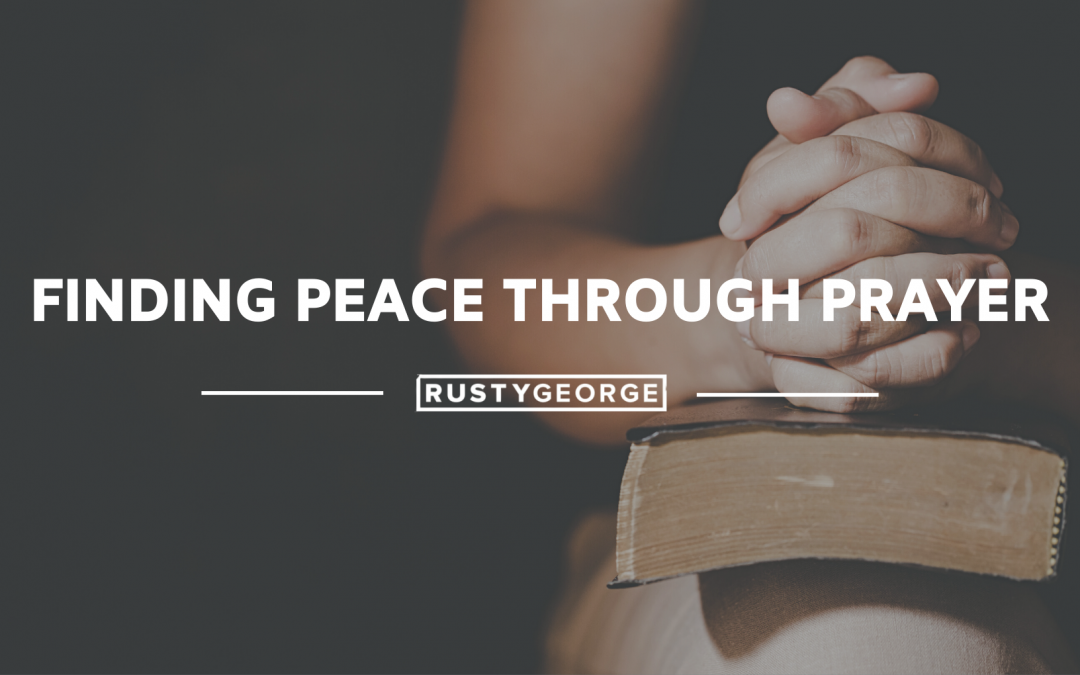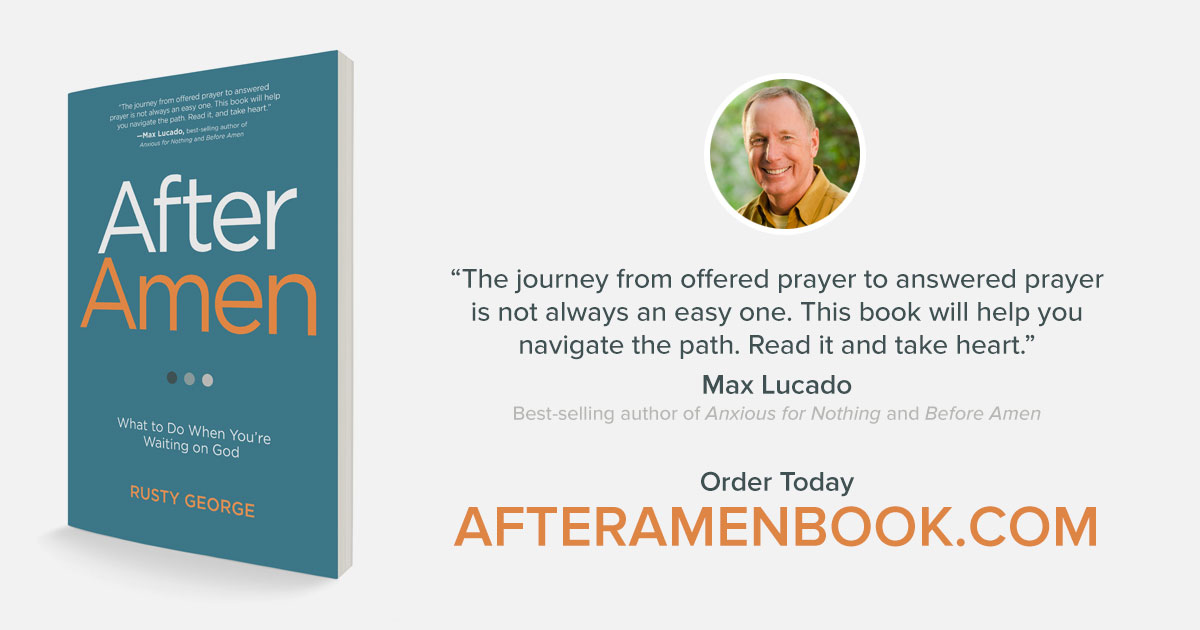Let’s face it. Sometimes praying feels a little like rolling into the grocery store when you are hungry and don’t have a shopping list. Everything looks good, necessary and must be consumed immediately. It can be overwhelming.
Recently we talked about how sometimes prayer can make anxiety initially feel heightened (listen here). But how can we find peace in prayer?
Here are a few tips I’ve learned the hard way…
1. Just sit there.
Prayer is not about rattling off a to do list for God or getting your marching orders from him. It’s about a relationship. When my wife and I got to dinner alone, the first 10-15 minutes is usually a cacophony of information – what does next week look like, who’s taking the kids to practice, what are we doing for dinner, how many nights do we have something, etc etc… But once we get that out of the way, we are ready to listen. To relax. To truly engage with one another.
In prayer, the best way to start is just to sit quietly and let your mind race till it feels like it can slow down. Keep a notepad if you want and write down everything that comes to mind so you won’t feel the need to try and remember it.
I find the app Pause by John Eldridge fantastic at helping you do this. You can sit for a minute or three or ten in guided quietness and let your mind rest.
2. Pray the Psalms.
In all of our efforts to get our list out, we can get rather miopic on our needs and wants and desires. This puts a lot of pressure on us to try to try and twist God’s arm, give him ultimatums, or say magic words to get what we want. Praying other people’s prayers helps take our mind off of our immediate needs and focus on the broader world around us.
Recently I picked up a book called a Psalter. It’s an old word for the collection of Psalms (prayers of David) in the Bible that have been made into a daily prayer book. It’s a great way to let someone else guide you in prayer.
David’s prayers cover a wide range of emotions and often say exactly what I’m feeling. Fear, anxiety, gratitude, joy… he covers it all. And it’s in the Bible, so you know it’s good. 🙂
At the conclusion of each reading is some commentary on the prayer. This can be helpful for all of us trying to learn the BIble and be honest in our prayers.
3. Keep a list.
Writing things down will go a long way to helping you feel like you’ve said what you need to say (thus brining peace) and then seeing an answer. I used to use a notebook, but now I just use my Notes app on my phone. Personally, this helped my integrity when I would say to someone “I’ll be praying for you” and then I’d struggle to remember. Now, I can just immediately add it to my list and bring up the list once a day at during my prayer time.
The other great thing about this is you can then see how God has answered your prayers. Add those in when you sense he’s doing that.
I have a new book coming out called After Amen: What to do while waiting for God and I talk about the 5 responses God gives us when we pray as shared by Luis Palau:
- Yes, I thought you’d never ask.
- Yes, and here’s more.
- Yes, but not the way you thought.
- Not at this time.
- No, because I love you too much.
I find that knowing these answers… and then putting them beside my requests… gives me tremendous peace and assurance that God is not only listening, but answering.
The book is coming out on October 17, 2020; but you can preorder it on my website this Monday. Stay tuned!


